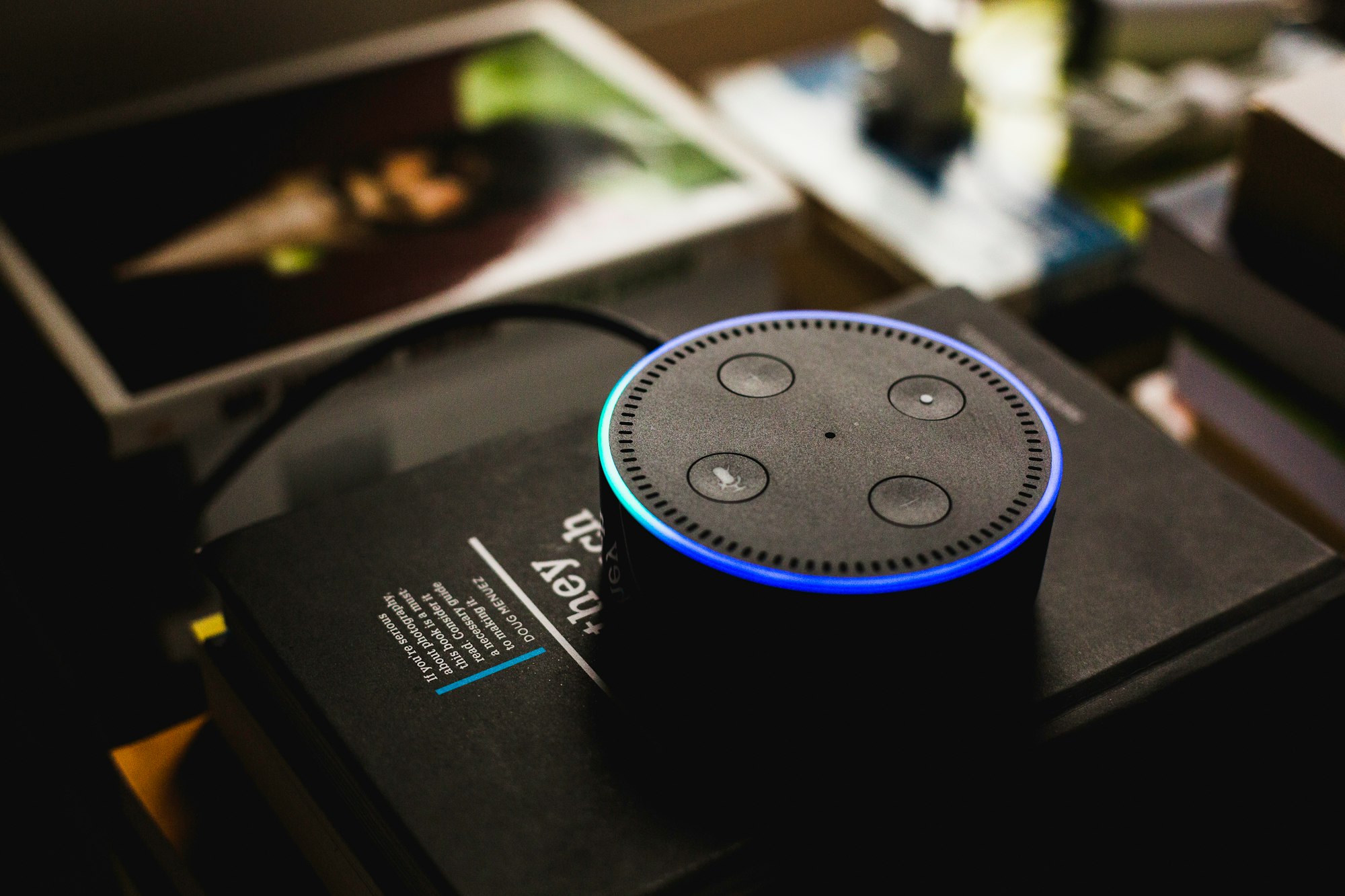As Amazon prepares to eliminate the local processing feature on its Echo devices starting March 28, 2025, privacy concerns surrounding the use of these devices in smart offices have intensified. With all voice recordings being sent to Amazon’s cloud servers, businesses deploying Echo devices in office environments must carefully evaluate the risks and benefits of integrating voice assistants into their workflows.
Amazon’s Privacy Shift: Key Changes
Amazon’s decision to discontinue the “Do Not Send Voice Recordings” feature marks a pivotal moment for its Echo devices. Previously, certain models allowed users to process voice commands locally, ensuring sensitive audio data stayed within the device. However, this option is being phased out to support advanced generative AI capabilities in Alexa+, which require cloud-based computational power1711.
Key changes include:
- Mandatory Cloud Processing: All voice interactions will be transmitted to Amazon’s servers for processing.
- Loss of Voice ID Functionality: Users who opt out of saving voice recordings will lose access to personalized features like Voice ID17.
- Data Retention Risks: Although Amazon promises to delete recordings after processing, concerns remain about how interaction data is stored and potentially shared710.
Privacy Concerns in Office Environments
Deploying Echo devices in smart offices introduces unique privacy challenges:
Always Listening
Echo devices are designed to continuously listen for wake words like “Alexa.” This raises concerns about inadvertent recording of sensitive conversations in office spaces, such as discussions about proprietary projects or confidential client information610.
Data Sharing
Research has shown that Amazon collects data from user interactions and shares it with advertising partners. In a business setting, this could expose company-specific data to third parties, creating security vulnerabilities610.
Employee Monitoring
Amazon’s Echo Show devices include cameras and microphones that can be remotely accessed by administrators. While marketed as a convenience for monitoring office spaces, this functionality could be misused or hacked, compromising employee privacy8.
Legal Compliance
Companies using Echo devices must ensure compliance with data protection laws such as GDPR or CCPA. Past incidents involving Amazon retaining children’s voice recordings indefinitely highlight the risks of non-compliance and potential legal liabilities27.
Benefits of Echo Devices in Smart Offices
Despite privacy concerns, Echo devices offer significant advantages for workplace efficiency:
- Automation: Alexa can control ambient settings such as lighting and temperature, streamlining office management45.
- Productivity Tools: Features like meeting scheduling, reminders, and project management integrations enhance workflow efficiency912.
- Collaboration: Video conferencing capabilities on devices like the Echo Show improve inter-departmental communication8.
Mitigating Privacy Risks
Businesses deploying Echo devices should take proactive measures to mitigate privacy risks:
- Restrict Access: Limit device usage to non-sensitive areas of the office.
- Enable Privacy Settings: Regularly review and customize Alexa’s privacy controls to minimize data collection.
- Educate Employees: Train staff on best practices for using voice assistants securely.
- Monitor Data Usage: Implement policies to ensure compliance with local data protection regulations.
- Consider Alternatives: Explore other smart office solutions that prioritize local processing and stronger privacy safeguards.
How do smart offices handle privacy concerns when using voice assistants like Alexa
How Smart Offices Handle Privacy Concerns with Voice Assistants Like Alexa
The integration of voice assistants, such as Amazon Alexa, into smart offices has revolutionized workplace efficiency. These devices streamline tasks, automate processes, and enhance collaboration. However, their deployment comes with significant privacy concerns that businesses must address to protect sensitive data and ensure compliance with privacy regulations.
Privacy Concerns in Smart Offices
Voice assistants like Alexa are always listening for their activation word (e.g., “Alexa”), which raises several privacy-related challenges in office environments:
1. Always-On Listening
- Passive Listening Risks: While voice assistants claim to only process audio after hearing the wake word, they are always passively listening. This creates the potential for accidental activations, where sensitive conversations might be recorded unintentionally14.
- Expanded Audio Capture: With advancements in AI, such as Alexa’s ability to continue conversations without repeated wake words, the range of captured audio increases, raising concerns about eavesdropping on private discussions5.
2. Data Storage and Sharing
- Cloud Processing: All voice commands are sent to cloud servers for processing. While companies like Amazon claim that recordings are deleted after use, concerns remain about how long interaction data is stored and whether it is shared with third parties14.
- Advertising and Profiling: Research shows that Amazon shares Alexa interaction data with up to 41 advertising partners. This creates risks of profiling employees or exposing proprietary business information to external entities5.
3. Security Vulnerabilities
- Data Breaches: If the cloud servers storing voice data are compromised, sensitive business information could be leaked or accessed by hackers16.
- Device Misuse: Unauthorized access to Echo devices could allow malicious actors to retrieve personal or corporate details without needing advanced hacking techniques6.
4. Legal and Compliance Issues
- Regulatory Compliance: Businesses using voice assistants must comply with privacy laws such as GDPR or CCPA. Non-compliance could result in legal liabilities if sensitive employee or client data is mishandled67.
- Human Review of Recordings: Some manufacturers allow employees to review recordings for quality improvement. This practice raises ethical concerns about who has access to sensitive office conversations3.
Strategies for Mitigating Privacy Risks
To address these concerns, businesses can adopt several measures to secure their smart office environments:
1. Configure Privacy Settings
- Use Alexa’s app to disable unnecessary data collection and set recordings to auto-delete after a specific period37.
- Opt out of human reviews of voice recordings when possible3.
2. Restrict Device Placement
- Place Echo devices only in non-sensitive areas where private or confidential discussions are unlikely to occur (e.g., common areas rather than boardrooms)5.
3. Educate Employees
- Train employees on the proper use of voice assistants and the risks associated with sharing sensitive information near these devices7.
- Encourage staff to manually mute microphones when the devices are not actively needed4.
4. Secure Network Infrastructure
- Use strong passwords and multi-factor authentication for accounts linked to voice assistants3.
- Secure the office network by encrypting communications between devices and routers7.
5. Explore Alternatives
- Consider using voice assistants that prioritize local processing over cloud-based solutions, reducing the risk of data exposure6.
- Evaluate whether deploying voice assistants is essential for specific office tasks or if alternative technologies can achieve similar results.
Balancing Efficiency with Privacy
Voice assistants offer undeniable benefits for smart offices:
- Automation of repetitive tasks like scheduling meetings.
- Hands-free control of lighting, temperature, and other IoT-enabled devices.
- Enhanced collaboration through features like video conferencing on Echo Show devices.
However, these benefits must be balanced against privacy risks. Businesses should weigh the convenience of voice assistants against potential vulnerabilities in data security and employee trust.
Conclusion
As smart offices embrace voice assistants like Alexa, addressing privacy concerns becomes critical. By implementing robust security measures, educating employees, and carefully configuring device settings, businesses can mitigate risks while leveraging the productivity benefits offered by these technologies. Ultimately, prioritizing transparency and compliance will ensure that smart offices remain both efficient and secure in an increasingly connected world.
While Amazon’s Echo devices offer transformative capabilities for smart offices, their mandatory reliance on cloud processing introduces significant privacy concerns. Businesses must weigh the benefits of enhanced productivity against the risks of exposing sensitive data. As technology evolves, companies should prioritize transparency and security when integrating voice assistants into their operations.
Citations:
- https://evrimagaci.org/tpg/amazons-alexa-faces-user-privacy-backlash-264469
- https://www.ftc.gov/news-events/news/press-releases/2023/05/ftc-doj-charge-amazon-violating-childrens-privacy-law-keeping-kids-alexa-voice-recordings-forever
- https://journals.law.unc.edu/ncjolt/blogs/amazon-alexa-the-privacy-concerns-when-technology-must-understand-human-needs/
- https://www.gearbrain.com/using-alexa-in-the-office-2639004111.html
- https://blog.adenin.com/smart-office-device-guide/
- https://www.cmswire.com/digital-experience/alexa-gets-smarter-but-what-does-it-mean-for-your-privacy/
- https://www.newsbytesapp.com/news/science/amazon-s-echo-to-send-all-your-voice-recordings-to-cloud/story
- https://techhq.com/2022/09/the-amazon-device-strategy-to-power-your-smart-office/
- https://www.digitalauthority.me/resources/alexa-for-business-skills/
- https://nstp.org/memberarea/federaltaxalert/2023/7-ways-alexa-and-amazon-echo-pose-a-privacy-risk
- https://www.theverge.com/news/630049/amazon-echo-discontinues-do-not-send-voice-recording-setting
- https://www.mdpi.com/1424-8220/21/3/734
- https://www.globenewswire.com/news-release/2024/07/16/2913783/0/en/Study-reveals-smart-home-privacy-risks-with-Amazon-Alexa-the-most-hungry-for-user-data.html
- https://news.ncsu.edu/2021/03/04/alexa-skill-vulnerabilities/
- https://arstechnica.com/gadgets/2025/03/everything-you-say-to-your-echo-will-be-sent-to-amazon-starting-on-march-28/
- https://www.reddit.com/r/TwoXPreppers/comments/1jbjumi/fyi_if_you_have_an_amazon_echo/
- https://www.reddit.com/r/privacy/comments/1jb8qwx/psa_amazon_alexa_discontinuing_do_not_send_voice/
- https://pluralistic.net/2025/03/15/altering-the-deal/
- https://mashable.com/article/alexa-echo-reporting-to-amazon-march-28
- https://www.aboutamazon.com/news/devices/new-alexa-generative-artificial-intelligence
- https://www.zdnet.com/article/alexa-for-business-likely-to-win-in-smart-office-leverage-aws-echo-developers-and-consumers/
- https://techcrunch.com/2025/03/15/amazons-echo-will-send-all-voice-recordings-to-the-cloud-starting-march-28/
- https://consumer.ftc.gov/consumer-alerts/2023/05/ftc-says-amazon-didnt-protect-alexa-users-or-childrens-privacy
Answer from Perplexity: pplx.ai/share




